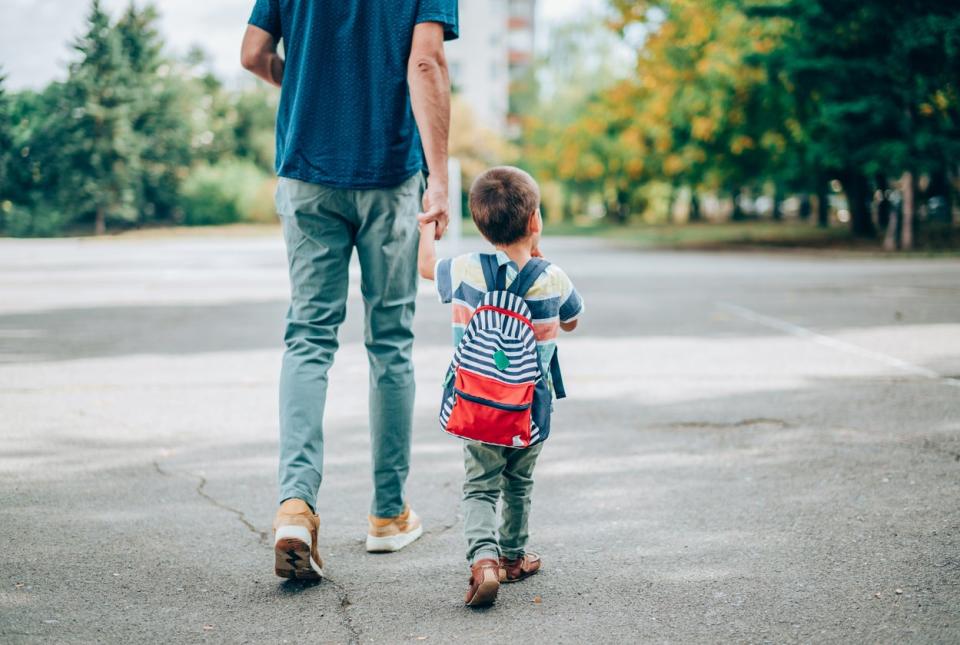Today I find out which school my son will attend – catchment areas are cruel and wrong

‘Sixty five per cent of students nationally reach the required levels for reading and maths – at our closest primary only 27 per cent meet these levels’
(Getty Images)Today, parents up and down the country will discover which primary school their child has been offered a place to attend – and I am one of those, anxiously awaiting an email from my local council. Some will be delighted to receive their first choice, but many will be left disheartened and disappointed. Unfortunately, unless you can afford to pay for private school or are religious, your postcode will more than likely determine your child’s educational fate.
We all have different and varying worries in life, the type that keep you awake at night – granted, some are more pertinent than others – but nevertheless, if you’re a parent that’s reliant upon the state system, there will have been a point when the term ‘catchment area’ left you with a certain sense of dread. Many schools use proximity as the determining factor to decide whether or not to admit a child and this can leave some at a disadvantage – especially if the school closest to your postcode has been rated (gulp) ‘requires improvement’ or ‘inadequate’ by Ofsted.
When I attended primary, which now feels like a lifetime ago, Ofsted was still in its infancy and we hadn’t yet decided to place all our faith within its grading system. It was a time before a rating could make or break a school’s reputation. It is, of course, perfectly natural to only want the best for your child and what could be more attractive than a school awarded ‘outstanding’? But sometimes I wonder if our football tier-style approach to education is more harmful than helpful.
These ratings will make some people go to extraordinary lengths in order to ensure that their child receives a place within their preferred school. Sometimes it can mean moving home or even renting another for a short period, but of course, that comes at a cost that many can’t afford, and becomes an option only for those who have disposable income or are on the property ladder. Once again, the poorest in society will have no choice but to send their children to a failing school as others are able to find a route out of this educational conundrum. â¨
There is another route, of course, which does not disparage on grounds of wealth – the religious path. My son was baptised a Roman Catholic and therefore we can set our sights slightly further afield, allowing us to have more choices within the school system than our atheist neighbours. I’m often taken aback by the number of people who convert to Catholicism each year within our own Church alone – of course, it could be a sign that the holy spirit is alive and well within Greater Manchester – but I have known of a few friends who’ve decided to put their principles to one side in order to gain a baptismal certificate, and it involves a considerable amount of time on their knees.
I wouldn’t, and don’t, blame anyone for doing everything in their power to give their children access to quality education as it can dramatically improve their children’s life chances. The national average of pupils meeting the required levels for reading and maths is at 65 per cent, and yet, if my child was to attend our closest primary, they would be entering a school where these skills are well below the national average at an eye-watering 27 per cent. During the Covid-19 crisis, Early Years Foundation Stage has been severely disrupted, if fear this generation has had doors bolted closed on them before they’ve even had a chance to knock.
A substantial amount of parents will already be orchestrating their appeals, many of which will be rejected. They will have to accept that their child will enter an institution that is sub-standard, based purely on where they can afford to live.
So spare a thought for your friends with children. Let them off the hook if they’re a little late replying to your messages today. They are more than likely wondering how they can reverse a decision that they’ve had no control over – and will be navigating a system that has potentially altered the course of their child’s life due to the location of their home.
I for one – like many – am manic with nerves today, and it is a completely warranted anxiety. In the near future, it would be fairer for schools to consider those from a lower socioeconomic background when offering places. The ultimate goal would be to raise the standards of some of our failing schools – but before we do we will continue to leave a significant number of children behind from the tender age of 5.
Read More
Greensill: ‘All decisions taken by the bank were made independently’, minister says
Bottom trawling must be banned immediately – it’s wrecking our oceans

 Yahoo Finance
Yahoo Finance 